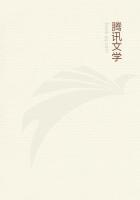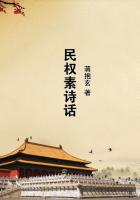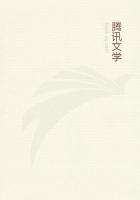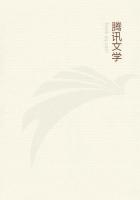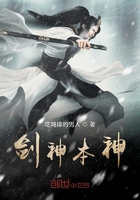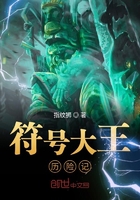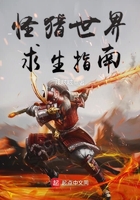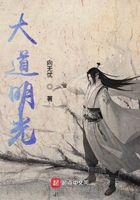"They arrived by achieving the impossible," he answered. "They did such blazing, glorious work as to burn to ashes those that opposed them. They arrived by course of miracle, by winning a thousand-to- one wager against them. They arrived because they were Carlyle's battle-scarred giants who will not be kept down. And that is what I must do; I must achieve the impossible."
"But if you fail? You must consider me as well, Martin."
"If I fail?" He regarded her for a moment as though the thought she had uttered was unthinkable. Then intelligence illumined his eyes. "If I fail, I shall become an editor, and you will be an editor's wife."
She frowned at his facetiousness - a pretty, adorable frown that made him put his arm around her and kiss it away.
"There, that's enough," she urged, by an effort of will withdrawing herself from the fascination of his strength. "I have talked with father and mother. I never before asserted myself so against them.
I demanded to be heard. I was very undutiful. They are against you, you know; but I assured them over and over of my abiding love for you, and at last father agreed that if you wanted to, you could begin right away in his office. And then, of his own accord, he said he would pay you enough at the start so that we could get married and have a little cottage somewhere. Which I think was very fine of him - don't you?"
Martin, with the dull pain of despair at his heart, mechanically reaching for the tobacco and paper (which he no longer carried) to roll a cigarette, muttered something inarticulate, and Ruth went on.
"Frankly, though, and don't let it hurt you - I tell you, to show you precisely how you stand with him - he doesn't like your radical views, and he thinks you are lazy. Of course I know you are not.
I know you work hard."
How hard, even she did not know, was the thought in Martin's mind.
"Well, then," he said, "how about my views? Do you think they are so radical?"
He held her eyes and waited the answer.
"I think them, well, very disconcerting," she replied.
The question was answered for him, and so oppressed was he by the grayness of life that he forgot the tentative proposition she had made for him to go to work. And she, having gone as far as she dared, was willing to wait the answer till she should bring the question up again.
She had not long to wait. Martin had a question of his own to propound to her. He wanted to ascertain the measure of her faith in him, and within the week each was answered. Martin precipitated it by reading to her his "The Shame of the Sun."
"Why don't you become a reporter?" she asked when he had finished.
"You love writing so, and I am sure you would succeed. You could rise in journalism and make a name for yourself. There are a number of great special correspondents. Their salaries are large, and their field is the world. They are sent everywhere, to the heart of Africa, like Stanley, or to interview the Pope, or to explore unknown Thibet."
"Then you don't like my essay?" he rejoined. "You believe that I have some show in journalism but none in literature?"
"No, no; I do like it. It reads well. But I am afraid it's over the heads of your readers. At least it is over mine. It sounds beautiful, but I don't understand it. Your scientific slang is beyond me. You are an extremist, you know, dear, and what may be intelligible to you may not be intelligible to the rest of us."
"I imagine it's the philosophic slang that bothers you," was all he could say.
He was flaming from the fresh reading of the ripest thought he had expressed, and her verdict stunned him.
"No matter how poorly it is done," he persisted, "don't you see anything in it? - in the thought of it, I mean?"
She shook her head.
"No, it is so different from anything I have read. I read Maeterlinck and understand him - "
"His mysticism, you understand that?" Martin flashed out.
"Yes, but this of yours, which is supposed to be an attack upon him, I don't understand. Of course, if originality counts - "
He stopped her with an impatient gesture that was not followed by speech. He became suddenly aware that she was speaking and that she had been speaking for some time.
"After all, your writing has been a toy to you," she was saying.
"Surely you have played with it long enough. It is time to take up life seriously - OUR life, Martin. Hitherto you have lived solely your own."
"You want me to go to work?" he asked.
"Yes. Father has offered - "
"I understand all that," he broke in; "but what I want to know is whether or not you have lost faith in me?"
She pressed his hand mutely, her eyes dim.
"In your writing, dear," she admitted in a half-whisper.
"You've read lots of my stuff," he went on brutally. "What do you think of it? Is it utterly hopeless? How does it compare with other men's work?"
"But they sell theirs, and you - don't."
"That doesn't answer my question. Do you think that literature is not at all my vocation?"
"Then I will answer." She steeled herself to do it. "I don't think you were made to write. Forgive me, dear. You compel me to say it; and you know I know more about literature than you do."
"Yes, you are a Bachelor of Arts," he said meditatively; "and you ought to know."

